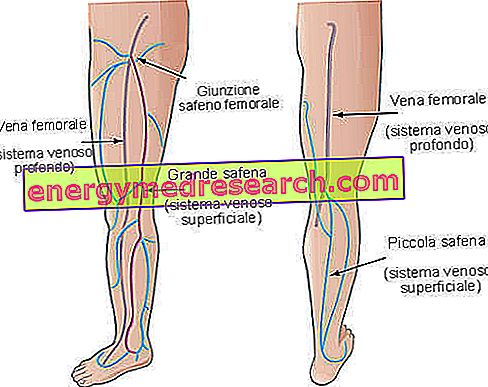What is erectile dysfunction?
Erectile dysfunction can be defined as the inability of the male subject to achieve and maintain an erection suitable for satisfactory sexual intercourse.

The various causal elements listed below may be from time to time simple risk factor, aggravating factor or primary cause of erectile dysfunction.
Possible causes
- Smoking habit (cigarette smoking)
- Acromegaly
- Alcoholism and other forms of abuse of voluptuous substances
- Some anaphrodisiac drugs (see Drugs that cause Erectile Dysfunction)
- Atherosclerosis, dyslipidemia
- Low testosterone levels, hypogonadism
- Severe bronchopneumopathies
- Liver cirrhosis
- Depression, emotional tensions, low self-esteem, performance anxiety, family and relationship conflicts, etc.
- Diabetes
- Lower urinary tract infections
- Surgical interventions (eg prostatectomy in patients with prostate cancer, transurethral resection of the prostate with peripheral nerve lesions) or traumas involving the pelvic area or spinal cord
- Chronic renal failure
- Hypercholesterolemia
- hyperprolactinaemia
- Hypertension
- Peyronie's disease (which leads to the formation of scar tissue inside the penis)
- Heart disease (heart disease)
- Thyroid diseases accompanied by hyperthyroidism or hypothyroidism
- Parkinson's disease
- Obesity
- Pelvic or perineal radiotherapy
- Multiple sclerosis
- Metabolic syndrome
- Cushing syndrome
- Excessive stress
- Treatments for prostate cancer or prostatic hypertrophy
Often different causal elements are intertwined and feed on each other; for example, obesity is frequently associated with metabolic syndrome, low testosterone levels, atherosclerosis, diabetes, reduced physical activity and psychological repercussions that negatively affect sexual health.
Forms of Erectile Dysfunction
Summarizing the above, erectile dysfunction can be classified into
- organic erectile dysfunction, when it is caused by physical factors such as vascular diseases or diabetes; in turn classifiable on the basis of:
- neurogenic
- endocrine
- vascular
- psychogenic erectile dysfunction, if it depends on stress, anxiety or other psychological factors.
- pharmacological erectile dysfunction, when it is caused by therapy with drugs that can directly or indirectly cause erectile dysfunction:
- antihypertensives: diuretics (thiazides, spironolactone), centrally acting antihypertensives (methyldopa, clonidine, reserpine), α-blockers (prazosin, terazosin), β-blockers (propanolol, metoprolol, atenolol)
- antidepressants: tricyclics, MAO inhibitors, serotonin reuptake inhibitors.
- antipsychotics: phenothiazines
- anticonvulsants (carbamazepine, phenytoin)
- antiulcer (cimetidine, ranitidine, famotidine)
- antiandrogens (cyproterone acetate, finasteride, ketoconazole, progestins, estrogens, GnRH analogues)
- lipid-lowering drugs (gemfibrozil, clofibrate)
- digital
- heroin, morphine, cocaine, methadone
Often, however, the etiology is mixed (mixed erectile dysfunction ), with the involvement of psychological, neurological, endocrinological, vascular, traumatic and iatrogenic causes.



